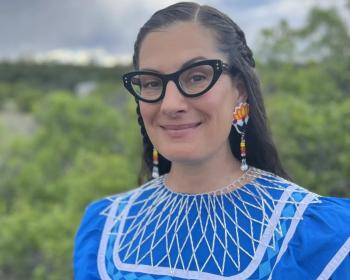
Peru will host the 15th International Festival of Indigenous Peoples’ Film and Communications, a key event for raising awareness about the experiences of indigenous peoples through film.
By Phoebe Farris (Powhatan-Pamunkey)
The Keepers of the Earth Fund (KOEF) is proud to announce our 2024 partnership with Indigenous communities. At Cultural Survival, we value cultivating long-term relationships with our partners by supporting Indigenous projects on issues related to community empowerment for the defense of land and autonomy; strengthening Indigenous languages, cultures, and knowledge systems; conservation of Indigenous land and livelihoods in the face of climate change; and resistance to mining as a part of the solution to the “green” energy transition.
Cultural Survival expresses our deep concern and indignation in the face of the continuous criminalization and rights violations against Indigenous defenders in Bolivia. In October 2024, the Quechua community of Totoral Chico rejected a farce consultation by mining company La Salvada Sociedad Colectiva, which was already operating in their territory. Now, the leaders are being threatened and criminalized. All eyes on Bolivia!
By CS Staff
On December 9, the International Day of Commemoration of the Victims of the Crime of Genocide, it is important to acknowledge that genocide can take different forms—but it is always destructive.
By Dev Kumar Sunuwar (Koĩts-Sunuwar, CS Staff)
Join Us for Our 48th Season of Indigenous Arts and Cultures
December 4, 2024 - Boston, MA. Indigenous Peoples’ rights organization Cultural Survival is pleased to announce the return of its beloved holiday event, the Cultural Survival Bazaar, an annual festival of Indigenous arts and cultures, on December 5-8, 2024, at the Prudential Center in Boston.
Abigail Sosa, Human Resources Assistant, was born and raised in New Jersey. She is a descendent of the Puruhá Peoples in Riobamba, Ecuador, and the Q’eqchi’ Peoples in Izabal, Guatemala. She holds a bachelor’s degree in Psychology from the University of Hawai’i at Mānoa. Her experience includes HR and recruiting as well as childcare and birth work. Abigail prides herself in empathy and considers herself to be an advocate for women and children - a commitment which has driven her professional career, her studies, and ultimately led her to Cultural Survival. Fluent in both English and Spanish, Abigail continues to pursue causes close to her heart and looks forward to contributing to our mission. Reach Abigail at abigail.sosa@culturalsurvival.org.